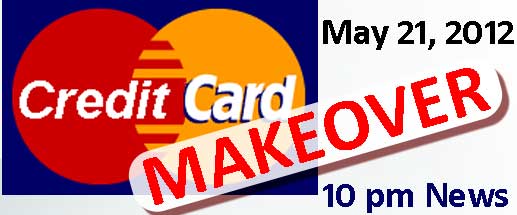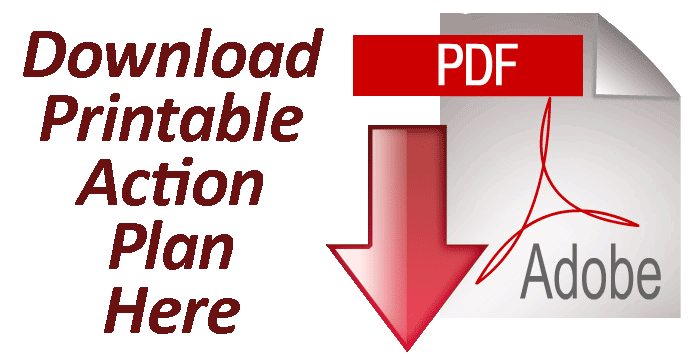
 |
 |
|||||||||||

|
YOUR PERSONAL CREDIT CARD MAKEOVER ACTION PLAN - Part 4← continued from Part 3Common Credit Card Questions and Answers:Q: How are my payments applied to my credit card bill? A: When you pay more than the minimum required, the card issuer must generally apply the amount you pay over the minimum to the balance with the highest interest rate. It is generally up to the card issuer to decide to which balance it will apply the minimum amount portion of your total payment Q: I have a deferred interest plan. Can I pay my deferred interest balance before my other balance? A: If you pay more than the minimum payment due, you may ask the card issuer to apply any amount paid above the minimum to the deferred interest balance before other balances. However, they are not obligated to honor this request if they apply your payment in excess of the minimum amount to the balance with the highest annual percentage rate and any remaining portion to the other balances in descending order based on the applicable interest rate. But, the card issuer must, for the two billing cycles prior to the end of the deferred interest period, apply your payment in excess of the minimum amount to the deferred interest rate balance first. So you can at least be sure to pay this deferred amount off in the last 2 months. Q: How is my minimum payment calculated? A: Surprisingly, it varies from one card provider to another. A typical amount is 1% of the current balance plus any interest, fees and penalties. This is more than it was in the past. Still it can take 10 years or more to pay off the card just paying the minimum, especially since it can be applied to just the lowest interest rate balance. www.cards.com did a nice survey in January 2012 of the formulas used by different card issuers. http://www.creditcards.com/credit-card-news/minimum-credit_card-payments-survey-1276.php Q: How can I pay down my debt faster? A: By now it should be obvious, pay more than the minimum. The new CARD rules have changed the statement so now you can see the amount needed to pay off your card in 3 years. Looking at the example below, you can see that just a small amount more per month can pay off the card much faster than you think! Here is an example from the Federal Reserve for a $3,000 debt:
Note: In order to pay off the debt in 36 months, you must pay the $103/ month for the full 3 years and not make any new charges. As you pay down the balance, the 36 month payoff amount shown on the credit card bill will drop, but that extends the time to pay it off. Don't make that mistake! Q: Can my credit card provider change my rate or other terms? A: There are certain restrictions about what changes the card issuer can make. For example, card issuers generally cannot increase the interest rate you pay on existing balances. There are also rules about the maximum amount the issuer can charge for a late or overlimit fee and the minimum amount of time you must be given before your payment is due. But if the card issuer does not violate any of these rules, it can make changes to your agreement. Also, card providers generally can increase or decrease credit limits without giving you notice, including reducing your credit limit so that you no longer have any available credit. If the card issuer does so, you cannot make any charges until you pay off some of your existing balance. However, without advance notice, the issuer will not be able to impose overlimit fees if you exceed the newly reduced credit limit, even if you previously opted in to the payment of overlimit transactions. In no event may the issuer charge overlimit fees if you have not opted in. For many changes, you have the right to opt out. However, if you opt out, the card issuer may close your account. If so, you do not have to pay the balance in full immediately after the account is closed, but you will still be responsible for making payments until the balance is paid in full. Depending upon the card issuer's policies, your payment may increase, but the amount of the new payment cannot exceed the higher of the amount needed to pay the loan off in five years or double the prior minimum periodic payment . Return to Credit Card Makeover - Part 1 ↑A free consumer debt consultation is available from the: National Foundation for Credit Counseling (also known as Consumer Credit Counseling Service or CCCS) www.nfcc.org or 800-388-2227 (your call will be routed to the nearest office)Sources used in compiling this action plan and for more information:http://www.federalreserve.gov/consumerinfo/wyntk_creditcardrules.htm New Credit ‘CARD’ rules http://www.federalreserve.gov/consumerinfo/files/wyntk_ccrules.pdf downloadable ‘CARD’ rules www.nfcc.org - NFCC helps you find a credit counselor in your area, has other resources www.creditcards.com – many articles on credit card issues http://www.creditcards.com/credit-card-news/minimum-credit_card-payments-survey-1276.php http://damonday.com/3654/does-credit-counseling-hurt-your-credit/ FICO score effects http://www.kiplinger.com/columns/ask/archive/how-to-negotiate-a-lower-creditcard-rate.html http://www.creditcards.com/credit-card-news/minimum-credit_card-payments-survey-1276.php http://www.lowcards.com/ - comparison of low cost cardsScroll down to Sign up for our Newsletter Sign Up for our Email Newsletter below:. We respect your privacy and will never share your name or email adress with anyone.
|
||||||||||
| Privacy Document | Contact Us | Helpful Articles | Resources | Sign up for our FREE Newsletter |
